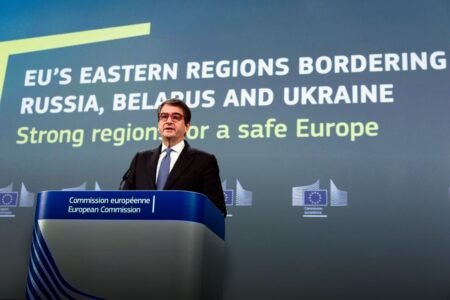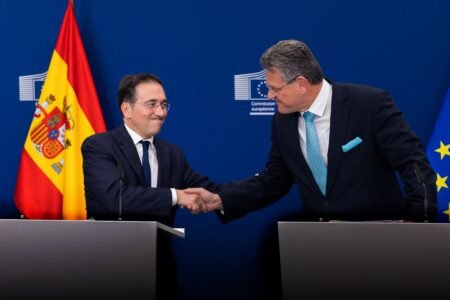Trafficking for sexual exploitation is the most commonly reported form of human trafficking in the European Union. It is a form of gender-based violence that disproportionately affects women. 95% of registered victims of trafficking for sexual exploitation in the EU are women or girls.
Advertisement
Trafficking in women and girls remains a structural form of violence against women. Member States are obliged by law to take gender specific measures to assist and protect victims. In the lead up to the EU Anti-Trafficking day on 18 October, the European Institute for Gender Equality (EIGE) has published a report on the matter.
“Our research shows that trafficking for sexual exploitation is rooted in gender inequalities. Anti-trafficking efforts cannot and must not overlook the gender-specific roots of this crime, which make women and girls more vulnerable to trafficking,” said Virginija Langbakk, EIGE’s director.
“Women and girls make up the majority of reported victims of trafficking and continue to be disproportionately affected. This report forms part of a new set of priority actions presented by the Commission in December 2017, and reflects the commitments agreed in the Joint Statement signed by the Heads of ten EU Agencies last June. I believe it will help the many women and girls who have suffered unfathomably at the hands of traffickers and abusers. It will also help Member States translate into action their legal obligations to adopt gender-specific measures which take into account the form of exploitation victims have been subjected to,” said the EU’s EU Anti-Trafficking Coordinator Myria Vassiliadou.
Victims of trafficking hold the right to assistance, support and protection.
EIGE has analysed both the EU Anti-Trafficking Directive and the Victims’ Rights Directive from a gender perspective. The Institute, in cooperation with the European Commission, has developed gender and child specific recommendations to help Member States implement the directives and monitor their progress. Both directives need to be implemented in complementarity in order to maximise their potential to protect. National strategies to address trafficking for sexual exploitation should also be included in a broader national strategy to combat gender-based violence.







